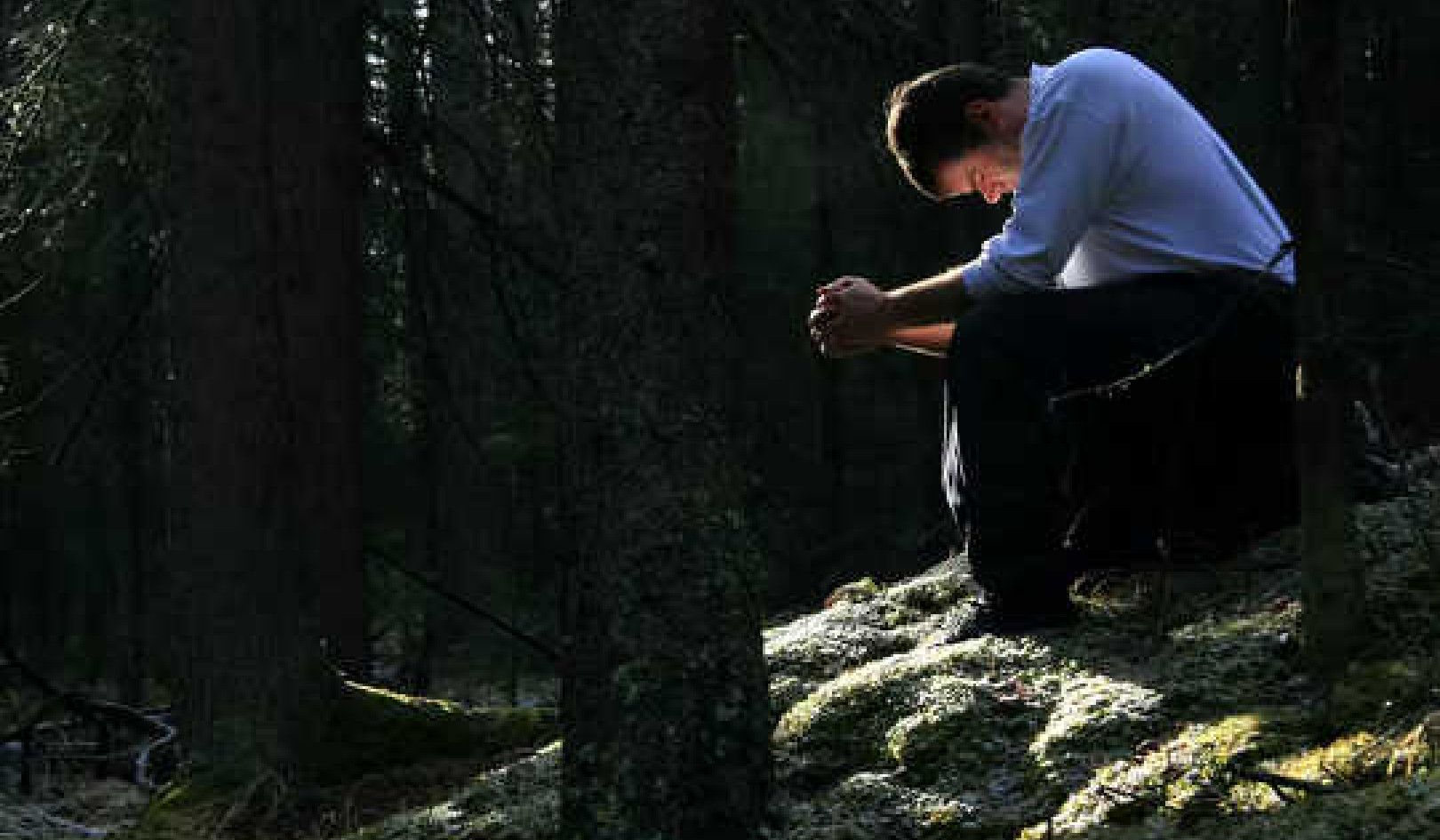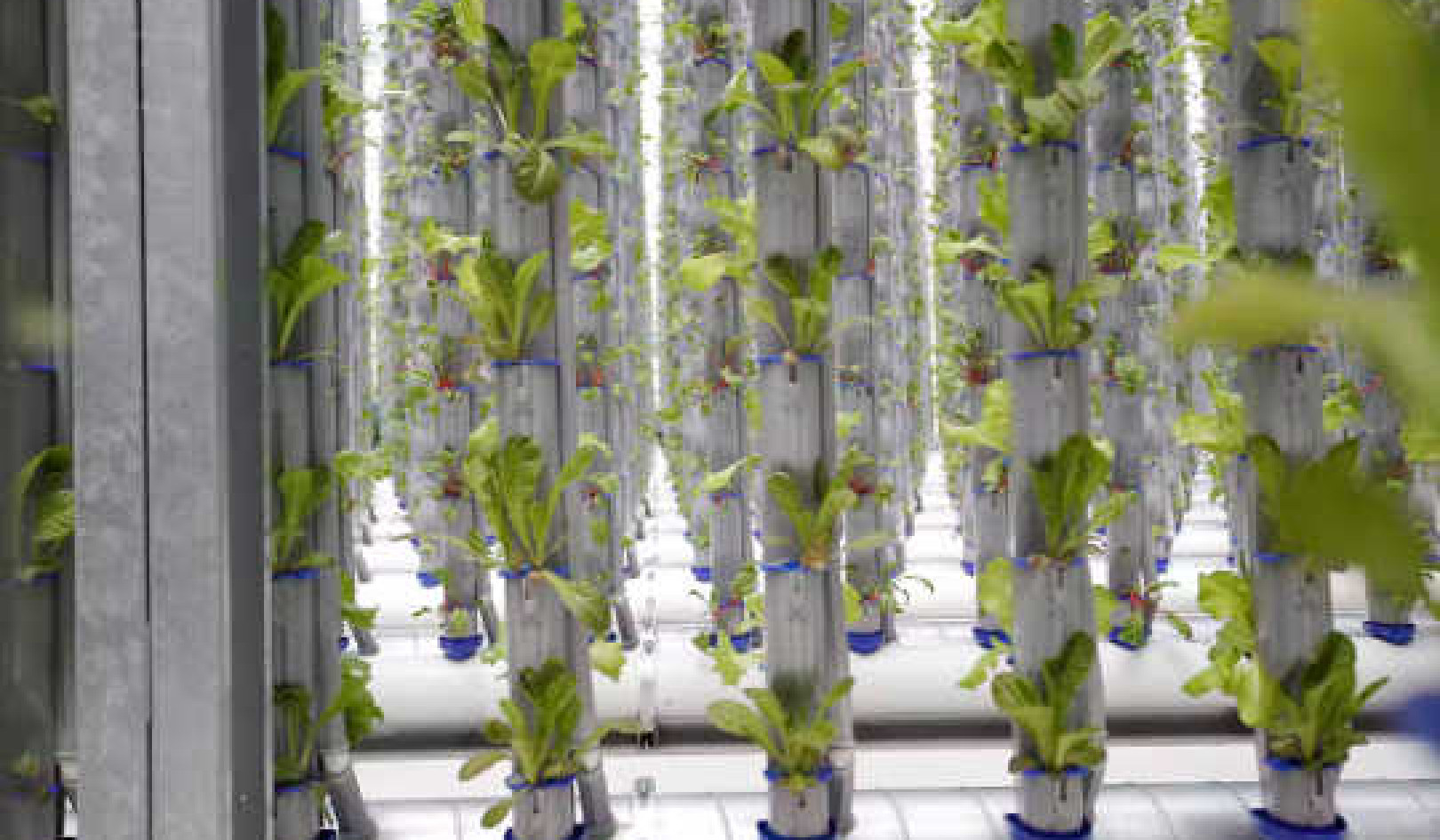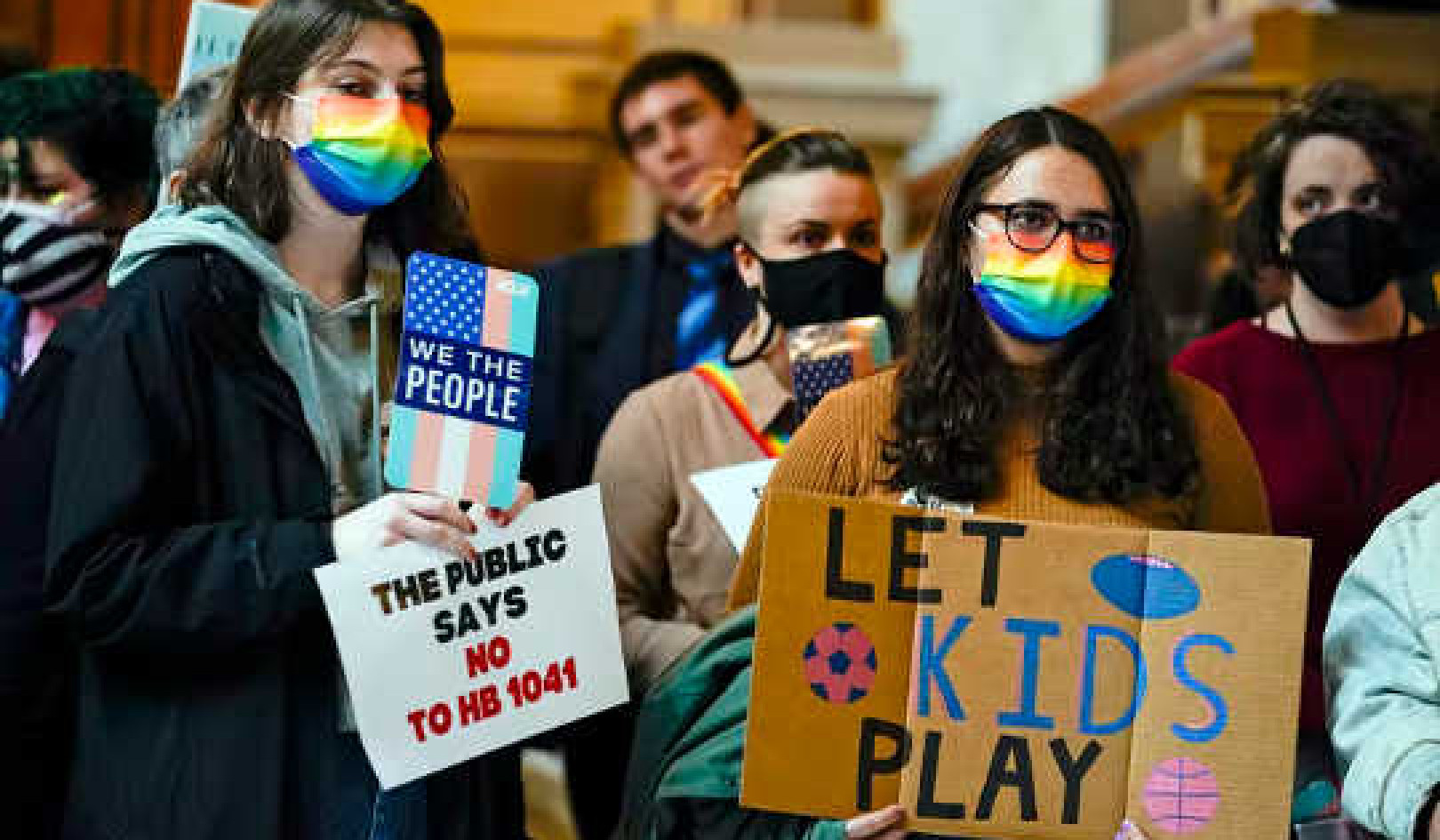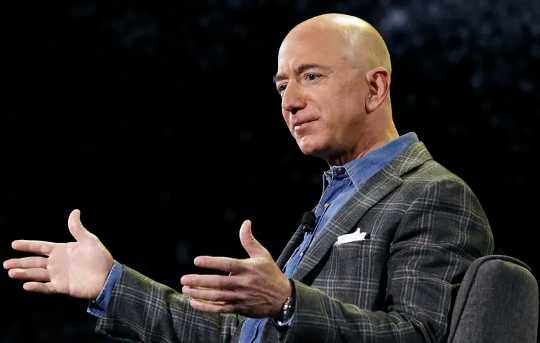 Jeff Bezos reshaped retail as CEO of Amazon. AP Photo/John Locher
Jeff Bezos reshaped retail as CEO of Amazon. AP Photo/John Locher
Amazon announced Jeff Bezos is stepping down as CEO almost 27 years after he founded the company to sell books to customers over dial-up modems.
Amazon wasn’t the first bookstore to sell online, but it wanted to be “Earth’s biggest.” When it first launched, a bell would ring in the company’s Seattle headquarters every time an order was placed. Within weeks, the bell was ringing so frequently employees had to turn it off.
But Bezos set his sights on making it an “everything store.” After achieving dominance in retail, the company would go on to become a sprawling and powerful global conglomerate in numerous lines of business.
Today, Amazon is the third-most valuable U.S. company – behind Apple and Microsoft – with a market capitalization of around US$1.7 trillion, greater than the gross domestic product of all but a dozen or so countries.
Here’s how Bezos reshaped retailing.
Redefining retail
Amazon – named after the world’s largest river – continually took shopping convenience to newer levels.
Before Amazon’s founding on July 5, 1994, shoppers had to travel to stores to discover and buy things. Shopping used to be hard work – wandering down multiple aisles in search of a desired item, dealing with crying and nagging kids, and waiting in long checkout lines. Today, stores try to reach out to shoppers anywhere, anytime and through multiple channels and devices.
After first experiencing two-day free shipping from Amazon’s Prime membership program, shoppers started expecting no less from every online retailer. An estimated 142 million shoppers in the U.S. have Amazon Prime.
The company made shopping more convenient through features like one-click ordering; personalized recommendations; package pickup at Amazon hubs and lockers; ordering products with the single touch of a Dash button; and in-home delivery with Amazon Key.
Shoppers can also search for and order items through a simple voice command to an Echo or by clicking an Instagram or Pinterest image. Amazon even has a cashier-less “Go” store in Seattle.
Amazon has also been a factor in the rising closures of brick-and-mortar stores that can’t keep pace with the changes in retail. Even before the pandemic, stores were closing at a phenomenal rate, with analysts predicting a coming “retail apocalypse.” Amazon benefited enormously last year as much of the U.S. went into lockdown and more consumers preferred ordering goods online rather than risking their health by going to physical stores.
Amazon’s share price has almost doubled since the lockdown began in March 2020, even as over 11,000 retail stores closed their doors.
A major employer
Amazon’s impact extends to other industries, including smart consumer devices like Alexa, cloud services like Amazon Web Services and technology products like drones.
Such is Amazon’s impact that industry players and observers use the term “Amazoned” to describe their business model and operations being disrupted by Amazon.
Today, Amazon is the second-largest U.S.-based publicly listed employer and the fifth biggest in the world. It employs 1.2 million people, having hired 427,000 during the pandemic. No wonder Amazon created such a buzz in 2018 when it held a competition to select a location for its second headquarters. It eventually picked Arlington, Virginia.
Amazon’s work culture is intense. It has a reputation as a cutthroat environment with a high employee burnout rate. It is automating as many jobs as possible, mostly in warehousing.
At the same time, after criticism from policymakers, Amazon stepped up in 2018 and raised the minimum wage for its U.S. employees to $15 per hour.
Faced with growing criticisms about the mounting impact of Amazon’s boxes and other packaging material on the environment, Amazon has also pledged to disclose more information about its environmental impact.
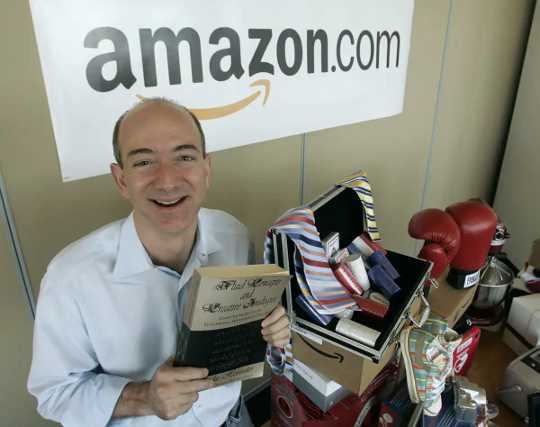 Jeff Bezos holds the first book Amazon ever sold, ‘Fluid Concepts and Creative Analogies’ by Douglas Hofstadter, in 2005. AP Photo/Ted S. Warren
Jeff Bezos holds the first book Amazon ever sold, ‘Fluid Concepts and Creative Analogies’ by Douglas Hofstadter, in 2005. AP Photo/Ted S. Warren
The next generation
What’s in store for Amazon as Bezos steps down from his CEO role later this year?
Bezos, who will stay on as Amazon’s executive chairman, has previously said his focus is on preventing Amazon from dying. As he noted at a 2018 all-hands meeting, “Amazon is not too big to fail.”
As a professor of marketing who has conducted research on online retailing and analyzed hundreds of cases, I believe that Amazon’s future – and humanity’s – is inextricably linked to the rise of artificial intelligence. Starting with Alexa, the company’s virtual assistant, Amazon is betting on AI.
In fact, Amazon is testing anticipatory shipping, a practice in which it anticipates what shoppers need and mails the items before shoppers order them. Shoppers can keep the items they like and return those they don’t want at no charge. It is also betting on cashier-free stores and AI-powered home robots.
Amazon’s future success will depend on how the incoming CEO – current head of cloud computing Andy Jassy – navigates these new technologies while pushing the company into more industries, such as health care and financial services.
His challenge is to keep Bezos’ legacy and Amazon’s disruptive culture alive and prevent it from dying.
This is an updated version of an article originally published on July 3, 2019.![]()
About The Author
Venkatesh Shankar, Professor of Marketing; Director of Research, Center for Retailing Studies, Texas A&M University
This article is republished from The Conversation under a Creative Commons license. Read the original article.
Recommended books:
Capital in the Twenty-First Century
by Thomas Piketty. (Translated by Arthur Goldhammer)
 In Capital in the Twenty-First Century, Thomas Piketty analyzes a unique collection of data from twenty countries, ranging as far back as the eighteenth century, to uncover key economic and social patterns. But economic trends are not acts of God. Political action has curbed dangerous inequalities in the past, says Thomas Piketty, and may do so again. A work of extraordinary ambition, originality, and rigor, Capital in the Twenty-First Century reorients our understanding of economic history and confronts us with sobering lessons for today. His findings will transform debate and set the agenda for the next generation of thought about wealth and inequality.
In Capital in the Twenty-First Century, Thomas Piketty analyzes a unique collection of data from twenty countries, ranging as far back as the eighteenth century, to uncover key economic and social patterns. But economic trends are not acts of God. Political action has curbed dangerous inequalities in the past, says Thomas Piketty, and may do so again. A work of extraordinary ambition, originality, and rigor, Capital in the Twenty-First Century reorients our understanding of economic history and confronts us with sobering lessons for today. His findings will transform debate and set the agenda for the next generation of thought about wealth and inequality.
Click here for more info and/or to order this book on Amazon.
Nature's Fortune: How Business and Society Thrive by Investing in Nature
by Mark R. Tercek and Jonathan S. Adams.
 What is nature worth? The answer to this question—which traditionally has been framed in environmental terms—is revolutionizing the way we do business. In Nature’s Fortune, Mark Tercek, CEO of The Nature Conservancy and former investment banker, and science writer Jonathan Adams argue that nature is not only the foundation of human well-being, but also the smartest commercial investment any business or government can make. The forests, floodplains, and oyster reefs often seen simply as raw materials or as obstacles to be cleared in the name of progress are, in fact as important to our future prosperity as technology or law or business innovation. Nature’s Fortune offers an essential guide to the world’s economic—and environmental—well-being.
What is nature worth? The answer to this question—which traditionally has been framed in environmental terms—is revolutionizing the way we do business. In Nature’s Fortune, Mark Tercek, CEO of The Nature Conservancy and former investment banker, and science writer Jonathan Adams argue that nature is not only the foundation of human well-being, but also the smartest commercial investment any business or government can make. The forests, floodplains, and oyster reefs often seen simply as raw materials or as obstacles to be cleared in the name of progress are, in fact as important to our future prosperity as technology or law or business innovation. Nature’s Fortune offers an essential guide to the world’s economic—and environmental—well-being.
Click here for more info and/or to order this book on Amazon.
Beyond Outrage: What has gone wrong with our economy and our democracy, and how to fix it -- by Robert B. Reich
 In this timely book, Robert B. Reich argues that nothing good happens in Washington unless citizens are energized and organized to make sure Washington acts in the public good. The first step is to see the big picture. Beyond Outrage connects the dots, showing why the increasing share of income and wealth going to the top has hobbled jobs and growth for everyone else, undermining our democracy; caused Americans to become increasingly cynical about public life; and turned many Americans against one another. He also explains why the proposals of the “regressive right” are dead wrong and provides a clear roadmap of what must be done instead. Here’s a plan for action for everyone who cares about the future of America.
In this timely book, Robert B. Reich argues that nothing good happens in Washington unless citizens are energized and organized to make sure Washington acts in the public good. The first step is to see the big picture. Beyond Outrage connects the dots, showing why the increasing share of income and wealth going to the top has hobbled jobs and growth for everyone else, undermining our democracy; caused Americans to become increasingly cynical about public life; and turned many Americans against one another. He also explains why the proposals of the “regressive right” are dead wrong and provides a clear roadmap of what must be done instead. Here’s a plan for action for everyone who cares about the future of America.
Click here for more info or to order this book on Amazon.
This Changes Everything: Occupy Wall Street and the 99% Movement
by Sarah van Gelder and staff of YES! Magazine.
 This Changes Everything shows how the Occupy movement is shifting the way people view themselves and the world, the kind of society they believe is possible, and their own involvement in creating a society that works for the 99% rather than just the 1%. Attempts to pigeonhole this decentralized, fast-evolving movement have led to confusion and misperception. In this volume, the editors of YES! Magazine bring together voices from inside and outside the protests to convey the issues, possibilities, and personalities associated with the Occupy Wall Street movement. This book features contributions from Naomi Klein, David Korten, Rebecca Solnit, Ralph Nader, and others, as well as Occupy activists who were there from the beginning.
This Changes Everything shows how the Occupy movement is shifting the way people view themselves and the world, the kind of society they believe is possible, and their own involvement in creating a society that works for the 99% rather than just the 1%. Attempts to pigeonhole this decentralized, fast-evolving movement have led to confusion and misperception. In this volume, the editors of YES! Magazine bring together voices from inside and outside the protests to convey the issues, possibilities, and personalities associated with the Occupy Wall Street movement. This book features contributions from Naomi Klein, David Korten, Rebecca Solnit, Ralph Nader, and others, as well as Occupy activists who were there from the beginning.
Click here for more info and/or to order this book on Amazon.


















